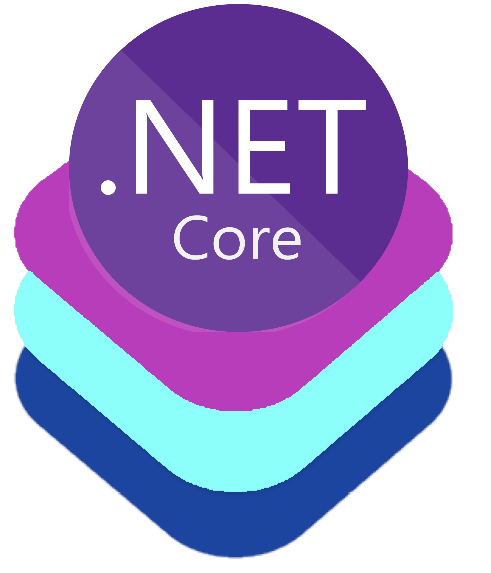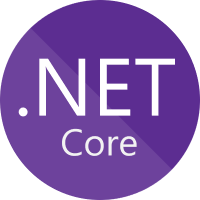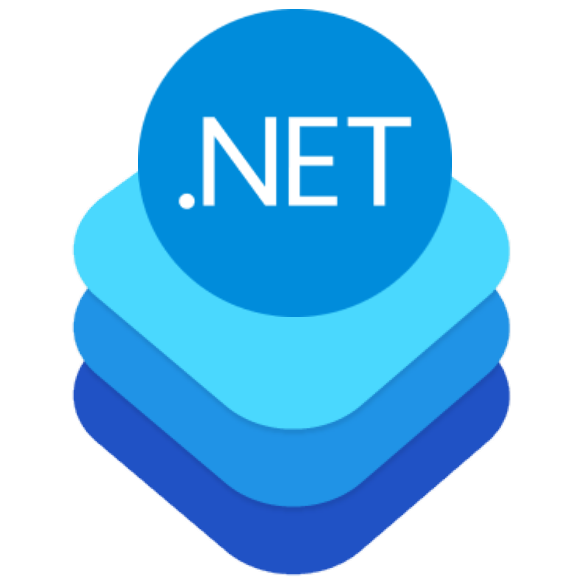13
DecWhat is .Net Developer? 8 Skills to Become a .Net Developer in 2025
What is .NET?
Do you know that the .NET platform is officially supported by Microsoft and trusted by thousands of companies and developers? There might be some solid reasons behind this huge popularity, right? .NET has a rich ecosystem of libraries, frameworks, and tools that streamline development and enhance productivity. From mobile applications running on iOS, Android, and Windows to Enterprise server applications running on Windows Server and Linux or high-scale microservices running in the cloud, .NET provides a solution.
In this .NET tutorial, we'll understand about a .NET developer, .NET developer skills, and .NET developer roles and responsibilities. You'll get answers to all your questions regarding your career in this diverse technology. Just be with us till the end.
Who is a .NET Developer?
- .Net Developer is a technical professional or developer who mainly works on designing and creating software applications using the .NET Platform technologies.
- The .NET platform is compatible with languages like C#, F#, VB.Net, etc. So, as a .Net Developer, we can use any of the languages supported by the framework to develop the application.
- However, most Developers mainly prefer C# as their preferred language for building applications.
- .Net Developers are mainly employed in systems and software houses, either in telecommunications, information technology companies, engineering offices for technical planning, or computer service providers.
- However, they can also work in various positions, such as IT Research and development facilities or the IT departments of companies in different sectors of the industry.
As a .Net Developer, we should know the below concepts:
- Programming Languages and Paradigms
- Code Structure, architecture, and system design.
- Development Platform or frameworks along with different stacks and tools.
- Handling database operations.
- Test the development to produce an error-free application.
- Analytical thinking.
- Communication.
| Read More: .Net Interview Questions For Freshers |
.NET Developer Roles and Responsibilities
.Net developers are mainly responsible for the design, related implementation, and further application software development. Besides this, a .Net developer needs to be able to analyze the specific problems and provide solutions or develop the appropriate system requirements. The significant roles and responsibilities of a .Net developer are as below:
- Analysis and Requirement Gathering: Collaborate with stakeholders, business analysts, and project managers to understand business requirements, functional specifications, and technical constraints.
- Design and Architecture: Design and architect scalable, maintainable, and extensible .NET applications, systems, and solutions.
- Development and Coding: Develop, implement, and maintain .NET applications, web services, APIs, and components using C#, ASP.NET Core, MVC, Web API, and other .NET technologies.
- Testing and Quality Assurance: Conduct unit testing, integration testing, and system testing to ensure the quality, reliability, and performance of .NET applications. Write test cases, perform code reviews, and participate in peer programming sessions to identify and address defects, bugs, and technical debt.
- Database Management and Data Access: Design and optimize database schemas, tables, indexes, and stored procedures using SQL Server, MySQL, or other relational database management systems (RDBMS).
- Integration and Interoperability: Integrate .NET applications with third-party systems, services, APIs, and external data sources using RESTful APIs, SOAP services, and message queuing systems.
- Documentation and Knowledge Sharing: Create and maintain technical documentation, architecture diagrams, design documents, and code comments to facilitate understanding, maintenance, and knowledge transfer.
- Deployment and Release Management: Package, deploy, and release .NET applications using continuous integration/continuous delivery (CI/CD) pipelines, deployment automation tools, and version control systems (e.g., Git).
- Maintenance and Support: Provide ongoing maintenance, support, and troubleshooting for .NET applications, addressing user-reported issues, system failures, and performance degradation.
- Continuous Learning and Improvement: Stay updated with the latest trends, technologies, and best practices in .NET development, software engineering, and related domains. Attend training programs, conferences, webinars, and community events to enhance skills, expand knowledge, and contribute to personal and professional growth.
Best 8 Skills Required to Become a .NET Developer
If you want to start your career as a .Net Developer, you need to know some mandatory skills required for this job role. For this job role, both technical skills and soft skills are needed. Let's see one by one skill below.
1. Technical Skills
1. Programming Languages & Frameworks
A.NET developers should be familiar with a variety of programming languages and frameworks in order to be versatile and effective in diverse development environments. The ability of a.NET developer to work with various languages and frameworks enables them to take on a variety of projects, including web and desktop applications, mobile apps, and more. Adaptability and a diversified skill set are critical in the ever-changing software development landscape.
| Concepts | .Net Developer should Learn the Following technical concepts |
| CSharp | C# is the primary language for.NET programming, hence strong knowledge of it is needed. It's used to create online applications, desktop software, mobile apps, and more. |
| VB.NET | Understanding VB.NET might be useful when working with legacy systems or maintaining older codebases. |
| ASP.NET & ASP.NET Core | Understand concepts like MVC (Model-View-Controller), Web API, routing, middleware, authentication, and authorization. Familiarity with front-end technologies like HTML, CSS, JavaScript, and client-side frameworks (e.g., Angular, React) is also beneficial. |
| Xamarin | Understanding Xamarin for cross-platform mobile app development with C# and.NET. |
| WinForms or WPF | You need to know how to create Windows desktop applications using WinForms or WPF (Windows Presentation Foundation). |
| Angular, React, or Vue.js | Understanding of popular JavaScript frameworks like Angular, React, or Vue.js for building dynamic web applications. |
| Razor Pages | Proficiency with Razor Pages for lightweight web pages and Blazor for creating interactive web UIs in C# and.NET. |
| HTML, CSS, and JavaScript | Knowing about web technologies like HTML, CSS, and JavaScript is crucial for front-end development and interactions in web applications. |
3. Understand Asp.NET MVC
The Model-View-Controller (MVC) pattern was introduced in the 1970s. It is a software design pattern that splits an application into three main aspects: Model, View, and Controller. Moreover, the MVC pattern forces a separation of concerns within an application, for example, separating data access logic and business logic from the UI.
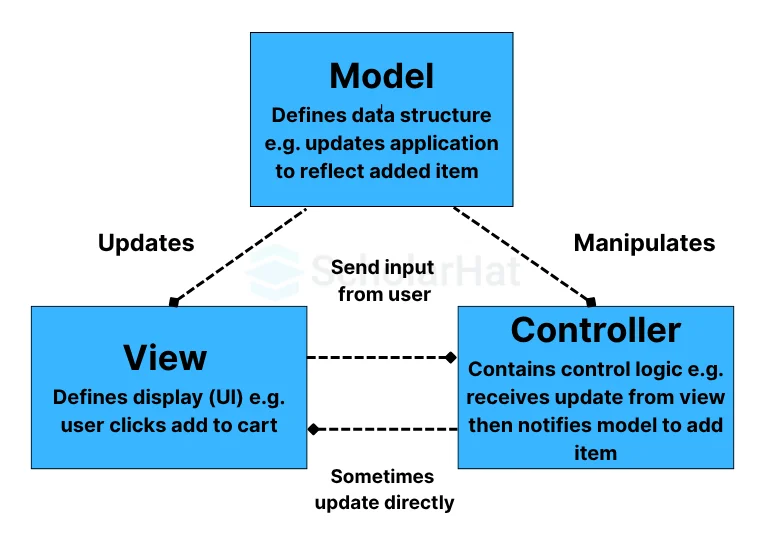
3. Microsoft Azure
Microsoft Azure is an open and flexible cloud platform that serves as the development, data storing, service hosting, and service management environment. Microsoft Azure provides developers with on-demand computing and storage to host, scale, and manage web applications on the Internet through Microsoft data centers.
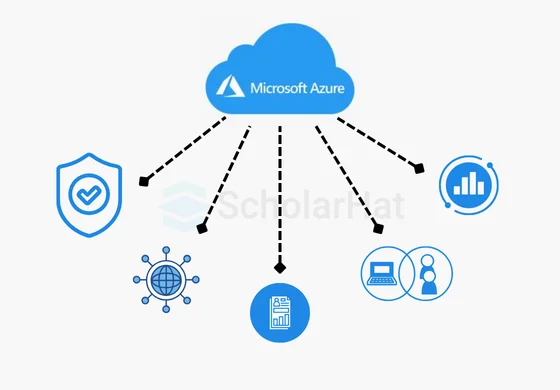
2. Some other technical skills
- .NET Framework and .NET Core:
- Learn about Common Language Runtime (CLR), Base Class Library (BCL), and core functionalities. Understand the differences between .NET Framework and .NET Core, and learn to leverage their features effectively.
- Desktop Application Development: For this, learn frameworks like Windows Forms and WPF (Windows Presentation Foundation). Then, explore concepts related to user interface (UI) design, data binding, controls, events, and MVVM (Model-View-ViewModel) architecture.
- Database Management: Become proficient in database management systems like SQL Server, MySQL, PostgreSQL, or SQLite. Understand database design principles, SQL queries, stored procedures, indexing, normalization, and transaction management.
- Version Control Systems: Learn how to use version control systems like Git for managing source code, collaborating with team members, and tracking changes across projects.
- Testing and Debugging: Develop skills in unit testing, integration testing, and automated testing techniques using frameworks like NUnit, xUnit, or MSTest.
- Deployment and DevOps: Understand the basics of deployment pipelines, continuous integration, and continuous deployment (CI/CD) practices. Learn to automate build, test, and deployment processes using tools like Azure DevOps, Jenkins, TeamCity, or GitHub Actions.
- Problem-Solving and Critical Thinking: Develop strong problem-solving skills and the ability to analyze requirements, identify potential solutions, and make informed decisions.
Many companies want MCSD-certified developers for the following reasons:
- Microsoft creates and maintains the certification process.
- Developers who pass the certification once need to recertify after two years to keep up with the latest .NET skills.
- It is a challenging but competent program that genuinely justifies the certification level.
| ScholarHat offers you the following Certifications where you will work on building real-world projects: |
3. Soft Skills
- Communication
- Problem–Solving Skills
- Time Management
- Team Building Skills
.NET Developer Job Description
The job description for a .NET developer may vary according to the company's requirements.The basic skillset more or less remains the same.The .Net developer job description highlights important skills, qualifications, and responsibilities of a .NET developer. The .NET developer is responsible for the overall development process from writing the code to testing, storing, finding errors, and presenting a functional, interactive application. He should be capable of building an entire application and must know the different factors that are important for building a successful .net application.
| Read Our: .Net Developer Salary 2024 |
| ScholarHat offers you the below learning resources to master your .NET framework basics and advanced: |
| Also Read: |
Conclusion
I hope that this article helped you understand the .Net Developer job role. It will give the reader a clear idea of the concept of a .Net Developer, including the required skills, roles, and responsibilities. If you have feedback related to the article, please leave a comment in the comments section of this article. For practicing the learned concepts, consider our .NET Training, ASP.NET Core Certification Training, .NET Microservices Certification Training, and Blazor Certification Training.
Take our Net skill challenge to evaluate yourself!

In less than 5 minutes, with our skill challenge, you can identify your knowledge gaps and strengths in a given skill.






